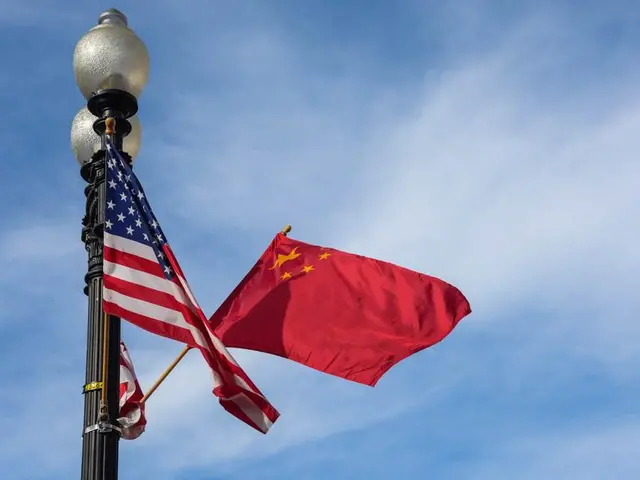by Xinhua writer Ma Qian
During his ice-breaking China visit in 1972, then U.S. President Richard Nixon said in a toast at a state dinner in Beijing that it is "not our common beliefs that have brought us together here, but our common interests and our common hopes."
At the end of the visit, China and the United States issued the Shanghai Communique, which acknowledges a key consensual willingness for the two sides to seek common ground while shelving their differences, and laid a political foundation for the development of bilateral ties.
Unfortunately, more than four decades later, the incumbent U.S. administration seems to be drifting away from that key political guideline as it has launched an aggressive China-smearing campaign, seeking to overturn the truth of the bilateral ties, and is openly bent on inducing change in China according to Washington's design.
While the White House's growingly confrontational stance towards Beijing is partly driven by its re-election anxieties, it also reflects Washington's deep-seated misconceptions about China and the bilateral ties.
Renowned French novelist Gustave Flaubert once put it: "Our ignorance of history causes us to slander our own times." Washington's rampant anti-China campaign exposes its sheer ignorance and arrogance, which has plunged the bilateral relationship into uncharted and precarious waters, posing a grave threat to the stability and development in a world that is wrestling with a twin-challenge of the COVID-19 pandemic and a major economic recession.
Despite Washington's increasingly belligerent posture against China, sober minds worldwide have expressed rational and objective assessments of the nature and the benefits of sound China-U.S. relations.
"This engagement has enabled us, as well as the Asia Pacific region and the world, to enjoy unparalleled peace and prosperity," former U.S. President Jimmy Carter said earlier this month in a letter to participants of a virtual dialogue on U.S.-China relations.
Interaction between the two countries has become both a product and a decisive driver of globalization, Mario Del Pero, a professor of international history at SciencesPo, Paris, wrote on The Guardian, stressing that it is the profound interdependencies that define China-U.S. relations and are revealing how particular and determined the bilateral connections are.
At this critical moment for China-U.S. relations, decision-makers in Washington should curb their hotheadedness and make the right choice that bears gigantic significance for not only the two countries, but also the rest of the world.
Most urgently, Washington should ditch its hostile China policy, and return to the path chosen by the two sides in 1972 that has ensured a generally stable development of bilateral ties over the past 40 years.
Nixon said in his toast back in 1972 that "as we discuss our differences, neither of us will compromise our principles. But while we cannot close the gulf between us, we can try to bridge it so that we may be able to talk across it." His words are still relevant today.
To do that, it requires Washington to respect China's core interests and major concerns over issues related to Taiwan, Hong Kong, Tibet and Xinjiang, among others.
In the face of Washington's provocation, Beijing has always made cool-headed and sensible responses, and rejects any attempt to create a so-called "new Cold War." Yet that does not mean China will sit on its hands and watch its core interests harmed. Washington's China hawks should not misestimate China's resolve to defend its sovereignty and security, so as to avoid strategic miscalculation.
Since the establishment of their diplomatic relations, the dynamic and all-around cooperation between the two countries has brought tremendous benefits to the two peoples and those around the world. Looking ahead, as the human race is grappling with an array of significant common challenges including COVID-19 and climate change, the two sides have more reasons to work together than to turn against each other.
"The past 41 years have not all been smooth sailing for China-U.S. relations ... However, the two countries have always approached their relationship from a historical perspective and with the bigger picture in mind," wrote senior Chinese diplomat Yang Jiechi in a recent article, adding that "no obstacle is insurmountable for the two countries, and the key lies in a true commitment to mutual respect, equality and seeking common ground while shelving differences."
As always, it takes two to tango. China is always ready to work closely with the United States for the welfare of the two countries and the common interests of the wider world. Previous U.S. administrations had made their far-sighted choices before. Those at the helms of America today should prove they have a similar vision to work together with Beijing while tolerating their differences.
 简体中文
简体中文




